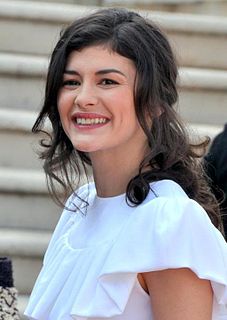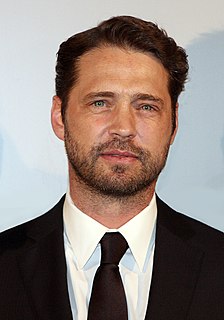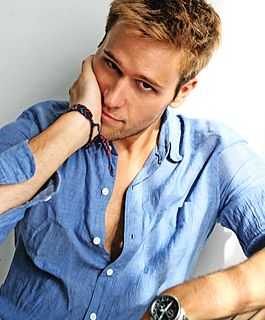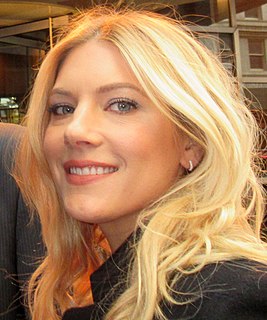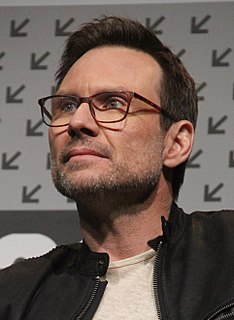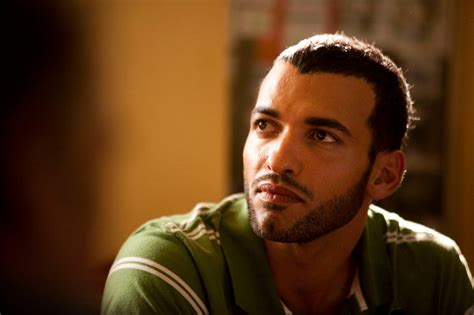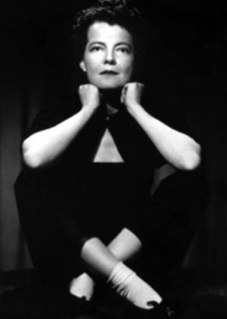A Quote by Audrey Tautou
What I like about theatre is the responsibility you have with your character.
Related Quotes
As an actor, your focus is very finite. All you're worried about is your character and what you have to do, what your goals are in this scene and in this piece of material. Whereas, as the director, everything is your responsibility. I enjoy carrying the load like that and being the responsible party.
Theatre is all about the process and the sense of community that is created. You have weeks of rehearsal, time to explore your character and get to know the other actors. There is opportunity to try off-the-wall ideas, to find layers and nuance over weeks. You become like a second family with your cast.
Character in many ways is everything in leadership. It is made up of many things, but I would say character is really integrity. When you delegate something to a subordinate, for example, it is absolutely your responsibility, and he must understand this. You as a leader must take complete responsibility for what the subordinate does. I once said, as a sort of wisecrack, that leadership consists of nothing but taking responsibility for everything that goes wrong and giving your subordinates credit for everything that goes well.
It really depends on what the screenplay is asking of you, and what your responsibility is to that character. You have the author's intent to deal with, you have the filmmaker's vision, and then you have your own wants, desires and needs for the character. It's collaborative. But I knew, right off the bat, that there was no way to go into some sort of pink-haired, clown-nosed character with Ronald McDonald shoes.
Before I worked on film, I studied the theatre, and I expected that I would spend my whole career in theatre. Gradually, I started writing for the cinema. However, I feel grateful towards the theatre. I love working with spectators, and I love this experience with the theatre, and I like theatre culture.
I'm very much into the costuming of any character that I portray and it's one of the great things about making movies is it's a collaborative art form so you get all these artists who are looking specifically about for this instance your character's costume and what that might tell about your character.
I did spend about 5 years in the Griffin Theatre Company in 1978 actually , and worked therefore about 5 years on a voluntary basis. This was very much as a amateur, doing things like mopping the floor, handling props, setting up scenery, etc. I never acted, and don't think I'm an actor, but those years in the theatre taught me a lot about professional theatre.
At the Neighborhood Playhouse School of Theatre, Sanford Meisner said, 'When you go into the professional world, at a stock theatre somewhere, backstage, you will meet an older actor, someone who has been around awhile. He will tell you tales and anecdotes, about life in the theatre. He will speak to you about your performance and the performances of others, and he will generalize to you, based on his experience and his intuitions, about the laws of the stage. Ignore this man!'
